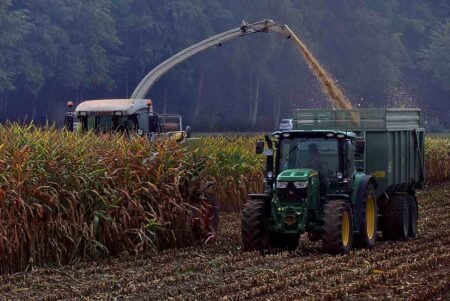A new report published by the European Science Foundation (ESF) and the European Cooperation in the Field of Scientific and Technical Research (COST) calls for Europe to take a new approach on food security. This new approach should prioritise health and sustainability in research and use a holistic view in policy making.
Entitled ‘Forward look: European food systems in a changing world’, the report was jointly chaired by Peter Raspor of University of Ljubljana, Slovenia, and Rudy Rabbinge from Wageningen University in the Netherlands. They write: ‘The past few decades have seen dramatic changes in European food systems. The next few decades may be as radical but the direction that future developments take can be initiated, influenced or mitigated when the right decisions [are made] by policy makers.’
More specifically, the report claims that a productive, more environmentally friendly, and internationally more acceptable European food system is tenable. European policy makers should make clear choices based on well-defined objectives and goals. Europe should change policies that either undermine agricultural development in developing countries or promote unsustainability spirals in terms of land, water and natural resources use. Food chains in Europe should be seen as integrated and whole, rather than disparate, individual activities.
The rapidly growing awareness of major global issues such as climate change and shifts in energy policy are raising fundamental concerns about Europe’s food security in relation to other needs of society (‘competing claims’). This means that both the complementary parts making up Europe’s food systems and the system as a whole urgently need to be upgraded, renewed and strengthened, according to the authors. New technologies, management methods, policies and institutional arrangements are needed, to increase food availability and access by all sections of societies to food – while reducing the environmental impact of the food chain.
The authors of the report also identify five megatrends which have affected the interaction of agriculture, the food chain and society over the past five decades and are predicted to remain influential in future: productivity increase, the changing nature of agricultural production, vertical integration of the food chain, wider production objectives, and the growing connection of food nutrition and health. These have influenced and shaped all the processes in a food chain, from growing to harvesting, processing, packaging, transporting, consumption, and disposal.
Until now, research has been largely concentrated on technical and policy issues for individual sectors rather than considering potential scenarios for highly integrated food chains. Combining this traditional research with an overall, holistic view of the system, continues the report, will lead to a better understanding of the issue. Additionally, explorative studies are likely to be very helpful for policy makers and generate data which can be useful in designing policy and a research agenda for the future of European food systems.
The ‘Forward look’ report also identified other key research priorities for national and European agencies: research on food security in the context of the European food system, as well as enhanced consideration of food safety and the links between food and human health.
The researchers explained: ‘The role of science in this interesting field may be best characterised as that of an honest broker. Scientists and science may help to explore various options to clarify particular developments, to help generate closer insights and knowledge, and to expand scientific contributions to food production, processing, packaging and distribution to meet a strong changing demand from consumers and retail organisations.’
Source: Community R&D Information Service (CORDIS)







